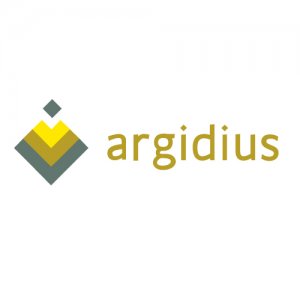
Insights on supporting growth-oriented youth enterprises
Supporting youth-led businesses to grow beyond the start-up phase is a vital element in supporting economic development globally, but especially in sub-Saharan Africa where micro, small and medium enterprises (MSMEs) are the “lifeblood of the economy”. Part of Youth Business International’s (YBI) work in leading our global network of enterprise support organisations (ESOs) is to enable our members to support youth enterprises who are ready to grow their business to the next stage.
New YBI research examines the performance of top-performing young entrepreneurs in our High Flyers I programme (2018-2021). The High Flyers programme, funded by the Argidius Foundation and the Government of Uganda, aimed to enable underserved youth in Uganda to scale post-startup businesses and drive waged job creation. The programme was implemented by two YBI members – Enterprise Uganda and Cordaid Uganda – who supported over 1,500 young entrepreneurs through the provision of support, including access to growth finance, business training, access to new markets, and mentorship. Our research provides insights on what factors enable growth for youth-run enterprises and how we can work with our members to replicate success in future programming.
Upon programme close, it became evident that some supported entrepreneurs significantly outperformed the rest of the programme cohort. The top 5% of the entire programme cohort collectively:
- Created 24% of all full-time jobs created during the programme
- Created 28% of all part-time jobs created during the programme
- Generated 38% of all revenue generated during the programme
From programme enterprise data and qualitative data (captured through key informant interviews with Enterprise Uganda and Cordaid Uganda staff, mentors, and selected entrepreneurs) YBI was able to probe specific traits, market characteristics, project activities, and demographic characteristics of these top performing youth enterprises.
Key findings include:
Urban men were more likely to be top performers than urban women or rural women
Urban-based enterprises were able to generate more revenue than rural businesses. Qualitative data provided greater insights on this geographic and gender difference and demonstrated various factors holding women back from realising their full entrepreneurial potential:
- The amount of additional reproductive labour (i.e., childcare, household work) women undertake which restricted their time for their business activity.
- Women’s limited access to capital and assets, especially land, particularly in rural areas.
- Expectations for women to stay close to home and restriction of their movement limiting their ability to travel to markets limiting both the size and growth potential of women-owned enterprises.
Even in urban settings, top performing enterprises were reliant on agricultural value chains
Although 73% of top performers were urban enterprises, analysis based on the business sectors where young people operated demonstrates the reliance of urban businesses on agricultural value chains. The linkage between agriculture and urban enterprises emphasises the importance of agriculture for entrepreneurs in sub-Saharan Africa where urban food markets are growing particularly rapidly and anticipated to reach 1 trillion USD by 2030.
Growth is not linear, but business age, resilience, and revenue at the start of support are indicators of success
Age, resilience, and financial position were three additional key indicators of growth.
Top Performing enterprises were on average 4.43 years old at the start of the High Flyers programme, nearly four years older than the average of the entire cohort, which was 0.42 years at programme start. Entrepreneurs running older enterprises were more likely to have a better understanding of market dynamics and had likely received more training than newer businesses.
Top performing enterprises had significantly higher revenues and were more successful at mobilising finance than the wider cohort. These factors are likely related to business age as older enterprises are likely to have higher revenues than younger businesses, particularly start-ups. While top performers and the wider cohort mobilised finance at nearly the same rate (15% and 16% respectively), top performers were able to mobilise 254% more than the cohort on average across the life span of the programme.
Key informants attributed this success to top performers having more assets to sell and reinvest in their businesses as well as their participation in community savings groups. They also spoke to the potential comparative attractiveness of top performers for formal financial institutions given higher revenues.
Insights and implications for future programming
The insights from this research and the considerations and recommendations detailed in the report will be relevant for organisations and governments looking to support young growth-oriented entrepreneurs. It also contains important insights into greater inclusivity to improve outcomes for entrepreneurs who may face additional barriers to growth such as young female and rural entrepreneurs.
Recommendations include:
- Ensure that programming allows for accurate targeting of enterprises with high-growth potential over striving to reach a larger number of overall programme participants.
- Develop clear, prioritised targeting criteria (with particular attention to age) which can be flexible to individual circumstances of enterprises and/or the entrepreneurs that run them.
- Assess entrepreneurs’ motivations, personal commitment, and availability to participate during the selection process. Pay in-person visits to entrepreneurs’ enterprises where possible.
- Ensure resources – both time and money – are allocated for both recruiting mentors fit for high-growth enterprises and matching high-growth entrepreneurs with mentors.
- Allocate funding for communications around the importance of mentorship within the entrepreneurial ecosystem.
YBI is drawing on the findings to identify, select, and support high-growth businesses and improve inclusive outcomes in our follow-on High Flyers programme (Community of Practice) which runs from 2022 to 2025.
Read the full research report ‘Identifying and Supporting High Flying Businesses – An Exploratory Analysis of Enterprise and Entrepreneur Data’ here.
Supported By
Other Articles
View allYBI’s 2025 Highlights
YBI Launches Third Round of the Member Learning Exchange Scheme
Join us at the EYE Academy launch day event: Unlocking Excellence in Youth Entreprenership
Those who make it possible
View all
Hogan Lovells

JPMorgan Chase & Co

Argidius Foundation

Accenture
